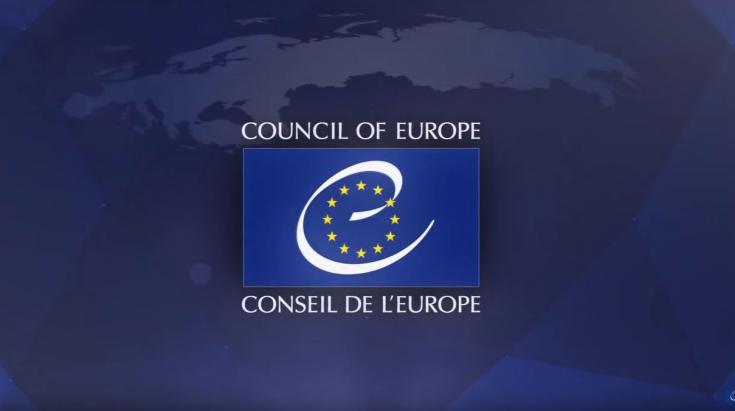By IMMAF Marketing, Communications and Brand Director, Isobel (Izzy) Carnwath Last Wednesday, I was privileged to attend a Council of Europe hearing on MMA in Paris alongside IMMAF CEO Densign White. The hearing was called as part of a review of ‘cage-fighting/ free-fighting’ initiated by the Enlarged Partial Agreement on Sport (EPAS) at its board meeting in May 2016. Formed in 2007, the EPAS organises intergovernmental sports co-operation between the public authorities of its member states and holds Council of Europe Conferences for Sports Ministers. At last year’s board meeting, EPAS members debated the Council of Europe’s 1999 recommendation prohibiting ‘free fighting’/ ‘cage-fighting’ (See Rec(99)11_en). According to published minutes, the debate was led by Médéric Chapitaux (French Thai-boxing), Jocelyn East (Sport Canada) and AIMS President Stephan Fox on the recognition of MMA as a sport, “on health hazards and on issues linked to criminal activity”. “The delegations discussed possible follow-up regarding this recommendation, suggesting that immediately drafting a new recommendation was not the right step. The idea to first discuss what is wrong with the 1999 recommendation – how and why it was out of date – was considered a better option…….The delegations decided to proceed with discussions between states and the sports movement on the lacunas in the old recommendation, inviting all those interested” to take part. A resulting working group was established with cross-governmental volunteers. Their objective is to collect all relevant information on the subject of MMA (best practices, expert comments, examples of current national legislation), with the end aim of revising Recommendation N° R (99) 11. This is significant, as the recommendation carries weight across Europe and indeed provides the basis for France’s ministerial ban on MMA. The two-day hearing on 25 and 26 April 2017 formed the second meeting of the ministerial working group, which has representation from Ireland, Iceland, Croatia, Montenegro, France, Belgium, Georgia and Netherlands. IMMAF and Swedish Mixed Martial Arts Federation founder, August Wallen, attended on the first day to answer questions about the organisation and regulation of martial arts. Densign White was invited to discuss new developments in regulation, while I was invited to answer questions on the same subject relating to medical organisation, Safe MMA, since I was involved in its founding and continue to volunteer for the project today. A series of experts from medicine, sociology, martial arts and criminology were also invited to give evidence. Densign and I were surprised to learn in the briefing notes we received in advance, that the EPAS was unaware of IMMAF’s application to SportAccord for recognition. The implication was that MMA had shown no interest in being a legitimate sport. This seemed odd since AIMS President Stephan Fox has been aware of IMMAF’s work towards recognition since prior to his involvement in the EPAS discussion on MMA last May. The Alliance of Independent recognised Members of Sport (AIMS) is the sub-group of SportAccord to which IMMAF has applied to become a member, and IMMAF began conversations with Fox long before its formal application was submitted in 2016. More disappointingly, Fox is also the head of the Muay Thai federation, IFMA and would seem to be joining judo and wrestling heads in opposing MMA. Fox had spoken the day before us at the EPAS hearing, as had renowned enemy of MMA, French Judo’s Jean Luc Rouge. On the other hand, the EPAS briefing notes also cited rivalry amongst the martial arts pointing out that there was no evidence of MMA being less safe than some others. Overall, the brief set the stage for an open discussion in which the EPAS sought to be well-informed, balancing accusations against the sport with broad research and counter-arguments. Returning to last Wednesday; when Densign spoke at the Council of Europe offices, he informed the cross-governmental working group of IMMAF’s rejected applications to the World Anti-doping Agency and SportAccord. He spoke of how IMMAF’s progress is being blocked politically. He outlined IMMAF’s work in the development of the sport and of Amateur MMA competition and spoke of the obstacles that MMA faces. I then explained a little bit about the Safe MMA project. We answered questions about regulation, insurance, safety and IMMAF’s relationship with the professional end of the sport. The hearing concluded with an opportunity for us to make recommendations: On behalf of IMMAF Densign recommended that it is imperative the sport is formally recognised. On behalf of Safe MMA, I concurred with Densign that the sport needs to be formally recognised, while IMMAF federations also need to be recognised at national level. Lack of recognition is creating greater risk in the sport since MMA competitors are effectively outlawed, and many doctors and professionals do not want to touch them. Further to that, on behalf of Safe MMA I recommended regulation, as well as administrative support to young national federations. Ultimately, MMA exists and continues to grow, with all its health and social benefits and its risks should be managed just like those of any other sport. Currently sport safety is being undermined by politics. ]]>

